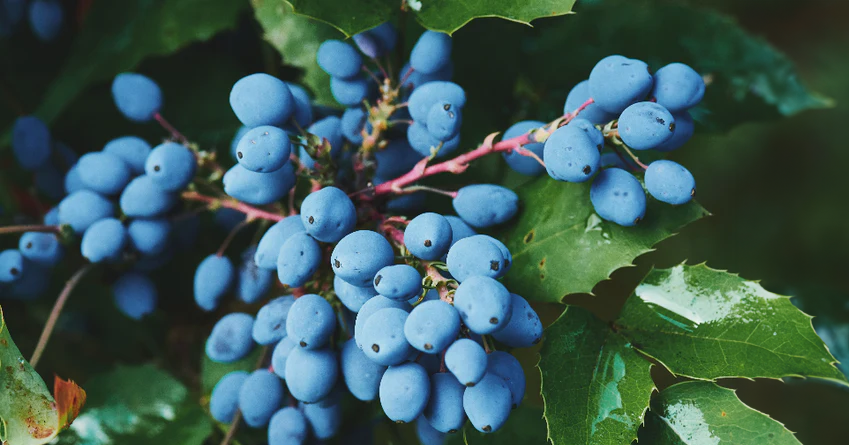The Latest on Berberine and Longevity

Berberine is a compound that dates back to 650 B.C. when it was utilized for both ancient healing practices and textile dyes due to its bright yellow hue. Now, we know that berberine can be isolated from several plants, including barberry, Oregon grape, Chinese goldthread, and goldenseal, and is best known for its role in blood sugar support.
More and more research is emerging about the benefits of berberine—including its potential link to healthy aging and longevity. Berberine has exhibited several biological actions that may support longevity, including its ability to support antioxidant status and a healthy inflammatory response.
Berberine helps to support healthy metabolism, cellular health, and blood sugar by activating an enzyme called AMPK (AMP-activated protein kinase). AMPK acts as a sensor for low energy levels inside cells. When this occurs, AMPK works quickly to restore energy balance inside our cells, which it does by altering metabolism to take glucose from the blood and pull it into cells for use as energy. Essentially, AMPK acts as a “metabolic master switch” in the body, and berberine encourages this process.
It’s thought that several aspects of aging are associated with disrupted AMPK signaling, elevated inflammatory markers, and poor antioxidant activity, suggesting that berberine could play a role in longevity by supporting these processes. Researchers have found that AMPK activation can delay aging in certain species, such as Drosophila melanogaster (a fruit fly commonly used in longevity research).
Sirtuins are another area of longevity that berberine has ties to. Some cell-based and animal studies have shown that berberine increases the activity of the SIRT1 protein, which supports longevity and the health of various organs, including the heart and brain. Berberine may also protect DNA and limit cellular senescence—a buildup of dysfunctional cells that can no longer replicate but remain in the body, causing harm and inflammatory damage.
Perhaps the most notable longevity-related findings have been shown in this study published in Aging Cell in 2020. In this research, older mice that received supplementary berberine had extended lifespans by 16.5% and significantly improved health markers of mice in their old age, including thicker fur and better behavioral function. They also found that berberine extended the lifespan of yeast by 28%.
Berberine certainly shows promise for supporting aspects of healthy aging. However, most of the longevity-related research so far has used cell or animal models. Clinical trials will need to be performed to say for sure what exactly berberine does for healthspan or lifespan in the aging human.
---
These statements have not been evaluated by the Food and Drug Administration. These products are not intended to screen, diagnose, treat, cure, or prevent any disease or condition or assess risk of any disease or condition. Unless advised by your healthcare professional, biological age should not be used to determine or alter any age-related health or medical treatments based on your chronological age.
More and more research is emerging about the benefits of berberine—including its potential link to healthy aging and longevity. Berberine has exhibited several biological actions that may support longevity, including its ability to support antioxidant status and a healthy inflammatory response.
Berberine helps to support healthy metabolism, cellular health, and blood sugar by activating an enzyme called AMPK (AMP-activated protein kinase). AMPK acts as a sensor for low energy levels inside cells. When this occurs, AMPK works quickly to restore energy balance inside our cells, which it does by altering metabolism to take glucose from the blood and pull it into cells for use as energy. Essentially, AMPK acts as a “metabolic master switch” in the body, and berberine encourages this process.
It’s thought that several aspects of aging are associated with disrupted AMPK signaling, elevated inflammatory markers, and poor antioxidant activity, suggesting that berberine could play a role in longevity by supporting these processes. Researchers have found that AMPK activation can delay aging in certain species, such as Drosophila melanogaster (a fruit fly commonly used in longevity research).
Sirtuins are another area of longevity that berberine has ties to. Some cell-based and animal studies have shown that berberine increases the activity of the SIRT1 protein, which supports longevity and the health of various organs, including the heart and brain. Berberine may also protect DNA and limit cellular senescence—a buildup of dysfunctional cells that can no longer replicate but remain in the body, causing harm and inflammatory damage.
Perhaps the most notable longevity-related findings have been shown in this study published in Aging Cell in 2020. In this research, older mice that received supplementary berberine had extended lifespans by 16.5% and significantly improved health markers of mice in their old age, including thicker fur and better behavioral function. They also found that berberine extended the lifespan of yeast by 28%.
Berberine certainly shows promise for supporting aspects of healthy aging. However, most of the longevity-related research so far has used cell or animal models. Clinical trials will need to be performed to say for sure what exactly berberine does for healthspan or lifespan in the aging human.
---
These statements have not been evaluated by the Food and Drug Administration. These products are not intended to screen, diagnose, treat, cure, or prevent any disease or condition or assess risk of any disease or condition. Unless advised by your healthcare professional, biological age should not be used to determine or alter any age-related health or medical treatments based on your chronological age.





